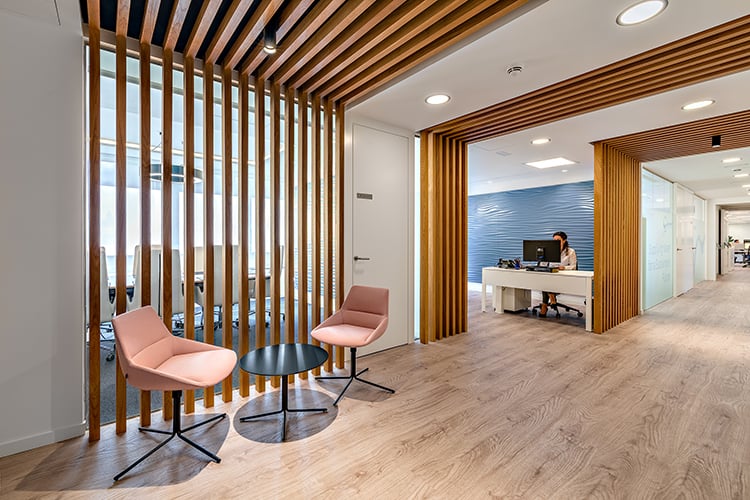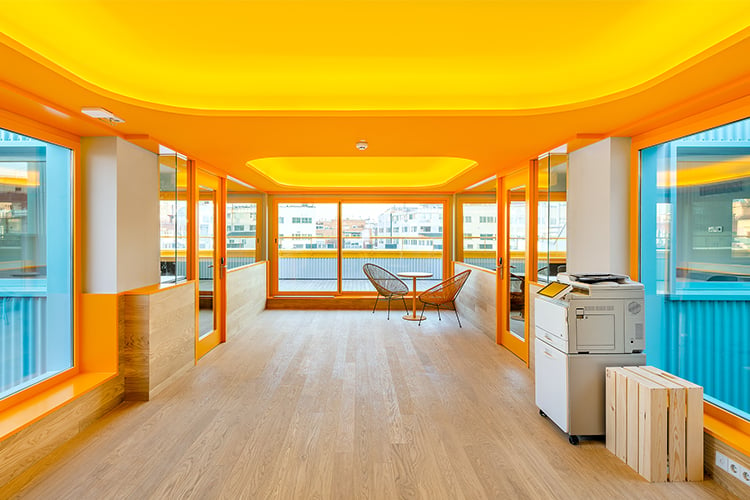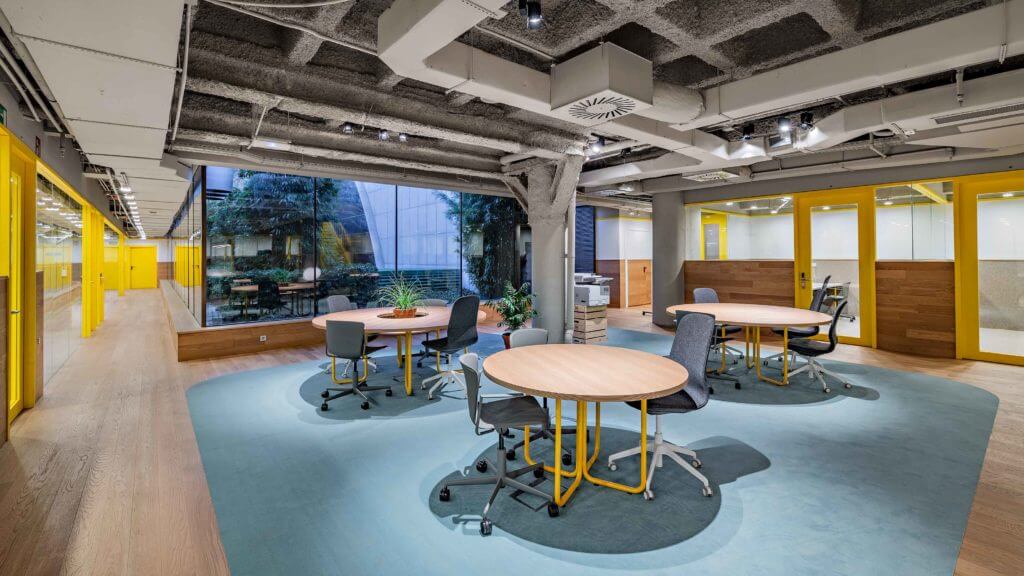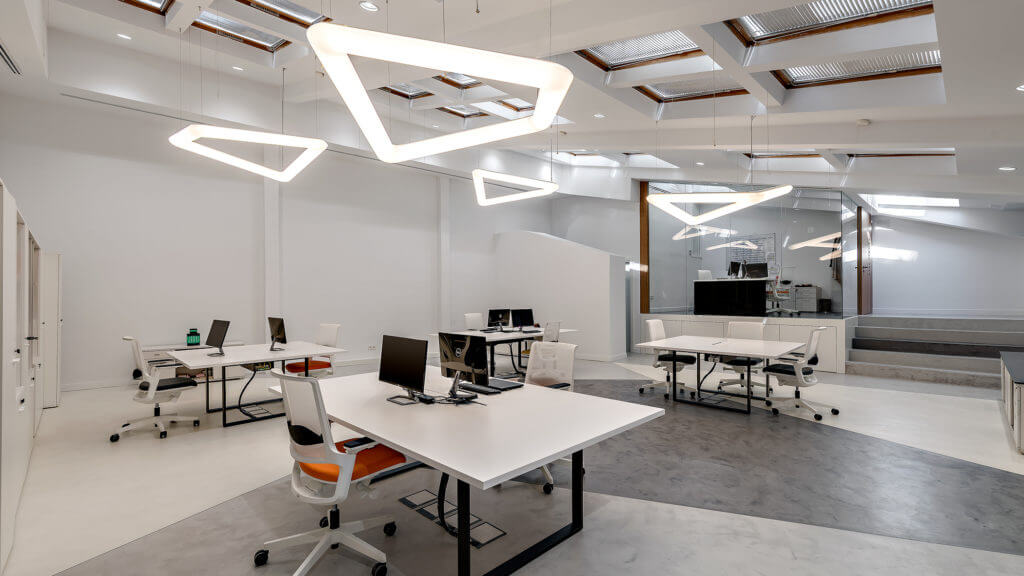Desescalada en la oficina: cómo volver al trabajo
La salud fue el principal motivo para el confinamiento en casa. Y la salud será el factor esencial en el regreso de los empleados a su lugar de trabajo. Este regreso y desescalada dependerá de las circunstancias de cada empresa, pero tendrán algunos puntos en común, todos ellos enfocados a evitar la propagación del virus en la oficina y generar confianza a sus usuarios:
- No sólo importa la realidad sino la percepción que tenemos de ella. Analizaremos las recomendaciones sanitarias y aplicaremos protocolos que incluyan conceptos como limpieza, desinfección, orden, distancia, entre otros. Deberemos esforzarnos en transmitir que dichos protocolos están estudiados, que la situación está controlada y el riesgo está medido.
- El rigor, la transparencia y la participación son esenciales. Sin estos conceptos no hay percepción de control ni confianza.
- El sentido común y el pragmatismo debe prevalecer, fundamentando la toma de decisiones.
- La flexibilidad ante nuevas recomendaciones sanitarias debe imperar en las propuestas realizadas, permitiendo adaptarse sin gran coste a escenarios de endurecimiento de medidas o, por el contrario, a su levantamiento en caso de desaparición del virus.
Gracias a la experiencia de Antana en la adaptación de los espacios de trabajo, podemos ayudar a las empresas a gestionar de la forma mas segura la vuelta de sus trabajadores a las oficinas.
«Será necesario resolver las distintas cuestiones que surgen a la hora de mantener limitado el riesgo de propagación»
Ya sea en oficinas corporativas o en espacios de coworking, en esta fase de desescalada será necesario resolver las distintas cuestiones que surgen a la hora de mantener limitado el riesgo de propagación sin alterar de manera dramática la actividad de las empresas. Analizamos algunas de ellas:
La primera cuestión a resolver por nuestro equipo de workplace será el número y tipo de puestos de trabajos necesarios en la nueva oficina. Para ello, conviene aprovechar el período de confinamiento para analizar el rendimiento del trabajo en remoto de los distintos puestos y la posibilidad de mantenerlos a largo plazo, incluso en escenarios de desaparición del Covid 19. También puede ser un buen momento para implantar puestos compartidos, adoptando las necesarias medidas de desinfección, si dicha implantación es compatible con la actividad de la compañía y reduce el número de puestos necesarios.

La segunda cuestión, íntimamente ligada a la primera, es el cálculo de la superficie necesaria. No cabe duda de que la posibilidad de trabajo remoto y de puestos de trabajo compartidos reducen la superficie necesaria. Por otra parte, en muchos casos, el distanciamiento implicará la ampliación de zonas de puestos operativos y de zonas compartidas (fundamentalmente, salas de reuniones y office). Dependiendo de la actividad de cada empresa, el resultado de los cálculos anteriores implicará más o menos superficie.
Debido a esta desescalada y su repercusión en la oficina la decisión de ampliación o reducción de puestos o superficie implica, generalmente, altos costes y compromisos a largo plazo. Apelando al sentido común y flexibilidad indicados anteriormente, parece razonable aprovechar la situación para acelerar procesos que ya estaban en marcha y que sean compatibles con escenarios con distintos grados de restricción.
«El equipo de Arquitectura de Antana es capaz de plantear implantaciones que permitan limitar el contagio y la propagación del virus»
El equipo de arquitectura de Antana es capaz de plantear implantaciones que, con bajo coste y en plazos ajustados, permitan limitar el contagio y la propagación del virus, manteniendo la flexibilidad necesaria para adaptarse a las nuevas recomendaciones sanitarias que puedan aparecer conforme se vaya conociendo el virus y sus mecanismos de contagio.
Son muchas las medidas que se han propuesto para limitar la propagación del virus en las oficinas en esta desecalada. Reproducimos aquí las relacionadas con la arquitectura que nos parecen más efectivas, equilibradas en cuanto a coste y plazo de implantación y, sobretodo, útiles y positivas para distintos escenarios de restricción:
- Diferenciación de zonas conforme al tipo de trabajo que se realice en ellas. Aplicando conceptos de metodología agile, en la oficina debe haber zonas de concentración, colaboración, comunicación (externa e interna) y archivo. En cada una de estas zonas se deberán establecer distintos controles de acceso, niveles de ocupación y protocolos de limpieza y desinfección.
- Adaptación de las zonas de trabajo a las recomendaciones sobre distanciamiento y a las medidas sobre teletrabajo y flexibilización de jornada aplicadas.
- Ampliación de las zonas de trabajo colaborativo y de comunicación.
- Rediseño de los flujos de tráfico para evitar aglomeraciones y señalización tanto en pared como en suelo.
- Instalación de mamparas protectoras en aquellas ubicaciones que lo necesiten.
- En espacios compartidos, colocación de materiales que se limpien y desinfecten fácilmente.
- Colocación de alfombras desinfectantes en los accesos.
- Colocación de dispensadores de soluciones desinfectantes para manos y para elementos de uso personal (teléfonos, ordenadores portátiles…) en zonas de acceso y de trabajo.
- Instalación de sistemas y aplicaciones de telecomunicaciones que fomenten el trabajo colaborativo no presencial.
- Mejora de la ventilación mediante el uso de sistemas de filtrado de aire.
- Sensores de presencia que permitan accionar sin contacto físico dispositivos de uso común (puertas, luces, grifos, dispensador de jabón…).
- Sistemas Smart de gestión de edificios que permitan controlar los sistemas de climatización, ventilación, gestión de accesos o gestión del flujo en zonas comunes.

La comunicación de las medidas descritas más arriba permitirán limitar de manera práctica la propagación del virus en la oficina dentro de esta desescalada y permitirán que el usuario de la oficina se sienta seguro.
Se deberán establecer programas de formación y participación permanentes que permitan la adaptación a nuevas recomendaciones sanitarias y a la experiencia de los propios usuarios. Las técnicas de gestión del cambio ayudarán a manejar no sólo la vuelta a la oficina, sino también los primeros meses de vida en ella.
Para una desescalada coherente aplicada a la oficina apostamos por soluciones prácticas que sigan las recomendaciones sanitarias y que tengan en consideración la actividad de cada una de las empresas y su implantación deberá adaptarse a la naturaleza de la organización y al perfil de sus trabajadores.
«Soluciones que no alteren la esencia de las empresas ni impliquen medidas excesivamente costosas»
En escenarios de incertidumbre como el que nos ocupa, creemos más en la adaptación que en la disrupción, por lo que recomendamos soluciones que, cumpliendo con las prescripciones sanitarias, no alteren la esencia de las empresas ni impliquen medidas excesivamente costosas. Se trata de implantar medidas que limiten la propagación del virus y que, además, sean positivas para la empresa y los empleados incluso en escenarios de desaparición del virus.
La esencia de Antana es ayudar a las organizaciones y adaptar sus espacios de trabajo a sus necesidades, siempre pensando en el bienestar de sus trabajadores. Llámanos, estaremos encantados de ayudarte en estos momentos de incertidumbre.
También te gustaría
Tendencias relacionadas

Calculadora de Oficinas. Antana desarrolla una herramienta online exclusiva para calcular la superficie de oficina y su coste de implantación

Tecnología y sostenibilidad en proyectos de oficinas



